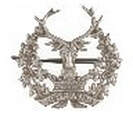|
I am obviously in poetry mode, and was introduced to this form of poetry in another group I belong. It can be quite fun.
Anchored Tersets Anchored tersets are a new poetic form created for the Northern Poetry Library by Lead Poet Lisa Metthews. Terset is an umbrella term combining ‘tercet’ – a three line poetical term with ‘terse’ ie brief. The anchor refers to the punctuation placed on the fourth line. The poem consisting of four lines, made of three lines with one word on each line and the fourth line is the punctuation mark. MARGARET’S ALWAYS RIGHT . RUTH UNDERSTANDS TERSETS ? NEGATIVITY WILL REDUCE . NATTERING WITH REFRESHMENT . REGRET WORRY NEVER . Margaret S I wonder if you've seen this article which is more hopeful about singing? Studies are still at an early stage but it cheered me up this morning!
Full article "Singing might not be so great a risk, after all" extracts below. "NEW scientific evidence from Germany has cast doubt on the claim that singing constitutes a high-risk activity in the transmission of Covid-19. ... Stories about the danger of transmitting the coronavirus through singing have proliferated since the widely reported outbreak of Covid-19 in Washington State, where 53 of the 61 members of the Skagit Valley Chorale fell ill after rehearsals on 3 and 10 March, immediately before lockdown measures. The incident was subsequently correlated with two other “super-spreader” events involving choirs in Amsterdam and Berlin (News, 29 May). An investigation by the US Center for Disease Control and Prevention, however, established that Skagit Valley choir members were sitting six to ten inches from one another, and sharing snacks and stacking chairs together, and that 19 members with “probable symptoms” were never tested. ... The one study based on research specifically into the safety of singing in the context of Covid has come from the Institute of Fluid Mechanics and Aerodynamics in Munich: “Singing in choirs and making music with wind instruments - Is that safe during the SARS-CoV-2 pandemic?” In the study, detailed measurement of the ballistic propagation of larger droplets when singing and speaking, and the flow-related spreading of small droplets, was conducted with a professional singer and vocal coach at the Mozarteum in Salzburg, and two amateur choral singers and five professional musicians. The Munich study concludes: “Air is only set in motion in the immediate vicinity of the mouth when singing. In the case of the professional singer, the experiments showed that at a distance of around 0.5 m, almost no air movement can be detected, regardless of how loud the sound was and what pitch was sung. It is therefore unlikely that the virus could spread beyond this limit via the air flow created during singing.” The researchers deemed this to be “not surprising, since singing does not expel a large volume of air in jerks like coughing or sneezing”. They concluded, with provisos: “If the findings and recommendations from our quantitative measurements are taken into account, then making music in a community should be relatively safe.” Similar experiments have been carried out for orchestral instruments, in research commissioned by the Bamberg Symphony Orchestra and the Vienna Philharmonic. The Freiburger Institüt fur Musikermedizin, which previously deemed singing a danger, has now released new guidelines that “Two metres will result in there being no increased risk of infection through droplets.” They also conclude: “Singing in very large enclosed spaces such as concert halls and church spaces appears to be very favourable. ...” My daughter is working as a Quantity Surveyor in Germany, and sent me these thoughts about the effect of Covid-19 where she is living. It was a couple of weeks ago, and things have eased since she wrote this.
--- There has been no 'shielding' and outright bans on people leaving their home which has been good. Measures have predominately focussed on maintaining business as far as possible whilst trying to break the chain of infection. I have so far not been affected by shorter working hours, nor have I yet had to leave my job due to me belonging to a risk category (due to underlying health conditions, my age). However, as the risks and infection rates worldwide grew, a lot of changes have taken place during the last two months. Lots of people, a number of my colleagues included, are now on compulsory part time working - 3 days a week for 6 hours a day. This is hard especially where you have families to look after. Other colleagues were compulsorily withdrawn from sites and sent home due to their age and / or other underlying health conditions. (These sites are in many different countries - not just Germany). The majority of the construction sites have closed as the countries in which these sites are located countries have fought to control the disease. Since 3 March 2020 business travel has just about stopped unless this is absolutely necessary. This is also the date that disinfection measures were stepped up throughout my office location and was triggered after a co-worker was contacted through the track and trace programme instigated after a business trip meant he had had a meeting with someone who then tested positive for COVID-19. It meant 2 entire offices were on a compulsory 14-day home quarantine. Between that date (3 March 2020) and 16 March 2020 3 other offices went into compulsory home quarantine as suspect cases rose. Fortunately, even now at my location we have only had this one confirmed case, despite under normal conditions a few thousand people work at this location under normal conditions. In general, Germany was about 2 weeks behind Italy and Spain in closing Restaurants and non-essential (i.e. non food shops and non chemists) shops. These closures occurred on my first or second day of working from home (i.e. 17 or 18 March). Other businesses have been allowed to operate provided that social distancing measures can be implemented and that extra hygiene measures were brought in (I dread to think how often my desk has been disinfected during my absence). From March onwards, a lot of companies undertook their own risk reviews and proactively requested those deemed to be 'at risk' of catching the infection to work from home where this is technically possible. This included myself as I travel to work by public transport. Others were given the option to work from home (again provided that the business did not suffer) to reduce the footfall into the offices. Now if I want to go into the office, I have to provide 48 hours notice, and I am not allowed to sit at my own desk as a colleague is sitting at another desk in my office: he struggles to work from home effectively (his computer seems to dislike his home Internet) Despite this, there has still been a high level of relative freedom. Although staying at home was actively encouraged, public transport still ran (with people being encouraged to sit at least 1.5m away from neighbours) and more businesses appear to have remained open than in other neighbouring countries. I send very warm wishes to all my Argus friends. It has been lovely to hear your news via the regular newsletters – many thanks to Helen and all contributors for these. I am fine, working and studying from home and looking forward to when we can come together again. Take care and all the best, Anne-Marie xx For one of my distractions during lockdown, please read on....A tomato story (with apologies to real gardeners!)
Extracts from Uxbridge (with thanks to “I’m Sorry I Haven’t A Clue.”) *
Far from making sense of the English language, most dictionaries fragrantly misregard basic English constriction – words simply don’t mean what they sound.
Perhaps you have other definitions to add to this far from comprehensive list? I came across this poem (I think it qualifies, not sure really) recently, which struck a chord with me, as we are being told that things will never be the same - there will be a new normal.
See what you think. The terminus is not where we stay; it is the beginning of a new journey. It is where we reach out beyond, where we experience new adventures. It is where we get off to enter new territory, to explore new horizons, to extend our whole being. It is a place touching the future. It opens up new vistas. It is the gateway to eternity. Margaret S  Find the names asked for in these questions. What do they all have in common? 1. Who was famous for playing the female lead in The Robe, Guys and Dolls and The Big Country? 2. What is the Latin phrase meaning, “The university, school or college formerly attended”? 3. Which Eastenders' actress said, “They say an actor is only as good as his parts. Well my parts have done me pretty well darling.” 4. Which British MP is arguably more famous for being Anton du Beke’s terpsichorially challenged partner in the 2010 series of Strictly Come Dancing? 5. Who is the silver haired actor who starred in Pretty Woman and Chicago? 6. Which song by Indie band The Zutons has also been covered by Mark Ronson & Amy Winehouse and the cast of Glee? 7. Who wrote The Tiger Who Came To Tea, Mog the Forgetful Cat and When Hitler Stole Pink Rabbit? 8. Which long-suffering pianist attempts to accompany the contestants on the Radio 4 show, I’m Sorry I Haven’t a Clue. 9. Which actress was played in a biopic by Glenda Jackson, portraying the challenges faced by her and her husband, Roald Dahl? 10. Which British novelist is the first to win two Booker prizes for two novels in a trilogy? 11. Which English/American actor is the first black person to play an English king in a major production of a Shakespeare play? 12. Which name also means, “to take legal action against”? 13. Who presented Blue Peter between 1983 and 1987, during that time becoming the first civilian woman to freefall from 20,000 feet? 14. Name the Labour MP for Edinburgh South. 15. She was woman, hear her roar. Who was the well know Australian/American actress, singer and activist? 16. Which author had a sister named Cassandra? 17. Which athlete, born in 1964, won gold medals in long jump at the Olympics in Barcelona and Sydney? 18. Who was Eth’s dim boyfriend in the long running radio show, Take It From Here, starring June Whitfield, Jimmy Edwards and Dick Bentley? 19. Which tennis player became the first woman to win all four Grand Slam tournaments in the same year in 1953 whose career was cut short by a riding accident the following year? 20. Who was the wife of King Constantine II of Greece? 21. Who was the 11 th President of Israel from March 2001 until April 2006? 22. Which regiment has this cap badge? 23. What was the name of Ken Loach’s famous 1966 BBC television drama about homelessness? 24. Which 96 year old actress is well know for playing Mrs Banks in the 1964 film Mary Poppins? 25. In February 2018 a gunman opened fire on a high school in Florida named after a journalist, author, women’s suffrage advocate and conservationist. Who was she? 26. Which actress played Ma Larkin in the TV production of The Darling Buds of May? 27. Who played Cosmo Brown in the 1952 movie, Singin’ In The Rain? 28. What do Sarah Brightman, Claire Moore, Patti Cohenhour and Sierra Boggess have in common? 29. Who was the 42 nd President of the United States? 30. Which 2011 film, based on The Prince and the Showgirl starred Michelle Williams, Kenneth Branagh, Eddie Redmayne, Emma Watson and Judi Dench? 31. Which American author of horror, science-fiction and supernatural fiction also writes under the pen-name of Richard Bachman? 32. Name the author below
Committee meetings were often held at the home of Mrs Jones in Chester-le-Street, a street , the name of which I can’t recall but it was just behind the Chester le Street hospital. If I could travel there I could name the street.
Mrs Jones was mum of Christine Jones and Gerry and Pauline Jones. The 3 girls were choir members for a time. Christine married David Harris, our previous conductor, Gerry subsequently married Michael Beaney who was also a choir member in the tenor section and has since joined the Master Singers. (I think that is the correct group name). Jean Good morning Helen,
Interested and pleased you found Argus first minutes. To fill in gaps before further search I can tell you:- J.Bell was a member of Durham County Youth Choir. As one of the older members had had to leave eventually but missed the singing. J.Bell bumped into Norman Barker subsequently and expressed the wish to have continued choral singing. Norman had been and I think still was the Bass Tutor of the Durham County Youth Choir. J. Bell asked him if he would be willing to start a new choir if enough people were interested and he said he would - he had conducted other choirs in past years. He was able to gather contact information for past youth choir members and they both set about seeking interest. Norman was a member of the Chester-le-Street Methodist Church and was able to secure use of rooms upstairs in the building, now replaced by the new annex. Saturday was agreed by J and N because that had been the rehearsal day for DCYC and would therefore probably best suit those who had been members as they may be in university, hopefully locally, or work and would therefore be otherwise committed and also Saturday was available for the church. As it would then be an adult choir some parents/ friends of youth choir members were able to join, including:-
A further trawl of the minutes will show that J Bell suggested the new choir ought to have a constitution and drew up that constitution. It has been tinkered with, and rightly so, on I think two occasions, the last about two years ago but it remains substantially the same as first drafted. The Committee was then tasked with finding a name for the new choir as “old members of the DCYC and friends” was not very flattering, even then. The Committee wished to have a name to identify locally with the area but all Dunelm and Cestria etc names had long since been adopted by other organisations. J Bell suggested the name “Argus“ it not only means ‘a fabulous being with a hundred eyes’, which was aspirational in both respects but also because of that drab brown Butterfly with orange spots which is very rare but is found in County Durham and I believe still in the Ferry Hill area. No more better suited name came forth hence "Argus Singers" was adopted. Final revelation J. Bell married in 1989 and became J. Graham. Just don’t ask how old I am! Happy reading of minutes Jean |
Archives
April 2021
Categories
All
|
||||||||





 RSS Feed
RSS Feed
